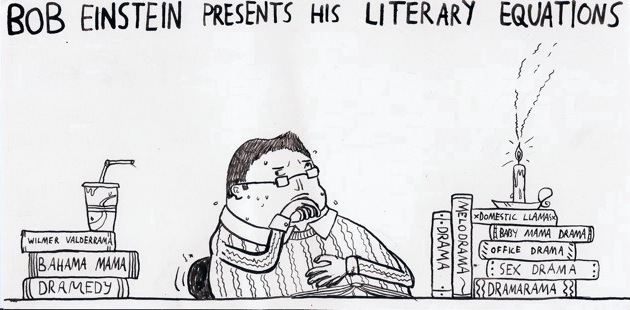 Wow, John Cheever, wow. Damn, too, damn, John Cheever, damn. I was not expecting that from you. "Bullet Park" is a strange and fascinating novel. Clearly, I had you pegged incorrectly. Thanks for that.
Wow, John Cheever, wow. Damn, too, damn, John Cheever, damn. I was not expecting that from you. "Bullet Park" is a strange and fascinating novel. Clearly, I had you pegged incorrectly. Thanks for that.See, nothing pleases me more than the revelation that I did not give a certain author enough of a chance in my first encounter with his or her work, and that his or her writing could, indeed, please me if only I'd open myself up to that possibility. Thanks, Dr. Suess, lesson learned. However, sometimes you need to be provided certain additional circumstances with your Green Eggs and Ham (both the dish and the children's novel). It's not always as simple as being willing to try them, I mean; you also sometimes need to be in the right mood.
But let's see, Mark Athitakis linked to a pretty useful blog post exhorting readers to beware this novel's description on the backs of book covers of certain editions. Methinks I had the same edition being described because mine does reveal something quite substantial about the plot, which might have served me better not to have been privy to. Still, I don't mind little or vague reveals provided the story is interesting. A similarly significant pithy revelation about its plot might have made reading "Everything is Illuminated" impossible drudgery, in contrast. (I'll get to "Everything is Illuminated" in a forthcoming post.)
So what makes "Bullet Park" good inmyopinion? [From this point forward I can no longer promise there won't be spoilers, read further at your own (potential) peril!] It's a lot like what Nabokov wrote but not derivative in the negative sense, i.e. lacking its own original vision. This pleases me. As you all know, you people who read this blog even merely occasionally, I'm pleased when things I read have a Nabokov-twinge to them. The Nabokov-twinge of "Bullet Park" doesn't make its appearance until part 2 of the novel, told entirely from the first-person perspective of Paul Hammer. Paul Hammer has something like Humbert Humbert or Dr. Kinbote or Hermann Karlovich in him, a strange zeal for upsetting the normative norms that dress life so plainly, in suburbia or wherever, and then reacting to this world in his own meta-beside-the-point way, which may or may not impel some sort of violent clash of sorts at the story's conclusion (which likewise has its Nabokovian feel, obsession being a thing that it is).
"Bullet Park" also begins, for me, a series of the myth of the American Dream novels, as presently I'm reading the lengthy but very good novel "J R" by William Gaddis, whom I was inspired to read in part because of a Big Other post in which Greg Gerke nicely states his thoughts on Gaddis' use of the sun and other elemental imagery in "The Recognitions" and in part because of the frequent mention Gaddis is given in "Wittgenstein's Mistress." A very editorial aside: Gaddis is probably the most underrated though paradoxically highly praised and awarded (2 National Book Awards among his credits) fiction writer of the last fifty years, or at least among the top five. (David Markson might well be up there as well, although I feel I should read more of his work before I affirmatively take that stance.) Also, aside from "Bullet Park" and "J R" I would then add "Revolutionary Road" by Richard Yates. I hear good things about "Revolutionary Road." Things I like hearing.
But to return to "Bullet Park," the novel also concerns Elliot Nailles and his son Tony, the struggle of the minutiae of their day-to-day lives. Tony at one point is shown being much too dependent on TV (or so Elliot decides), and Elliot (who is normally referred to strictly as "Nailles") decides he must rid his son of his dependency by destroying the television set. He does and this act seems to be the beginning of a rift that only grows larger between father and son as time goes on. Hammer speaks of being struck by a "cafard" in his early to mid-twenties, one that he decides can only be ameliorated by a house he becomes infatuated with, almost sensually, and in specific one of its room's yellow walls. Meanwhile, Tony suffers his own cafard, one that renders him completely bedridden and inconsolable. Tony is immune to conventional medicine, it appears, and Nailles and his wife, Nellie, opt to pursue a very different method of recovery (which I won't detail here, although it'll become obvious if you read the novel). This unusual method immediately has the desired effect and Tony seems, for all intents and purposes, cured. Hammer comes to the Bullet Park neighborhood with his wife, Marietta, who treats him badly. Hammer comes to Bullet Park, likewise, with an ulterior motive, which would have been surprising indeed had I not had the version of the book I had.
And on second thought, it would have been far better not to have known what was coming. Keep that in mind if you decide to hunt for "Bullet Park" somewheres. You ought to, hunt, though. Read it, I mean. DO!





